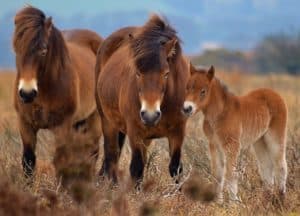
Inbred Horses Help Scientists Identify IBH Gene Locations
Researchers studied a group of related Exmoor ponies to find the chromosomes that could carry IBH-related genes.

Researchers studied a group of related Exmoor ponies to find the chromosomes that could carry IBH-related genes.
The 5th Annual The Betsy gala will raise money for the Markey Cancer Foundation.
A lively Table Topic discussion on Equine Behavioral Abnormalities was held at the 2009 AAEP Convention.
The High Risk Pregnancy in the Mare session at the 2009 AAEP Conference was very well attended.
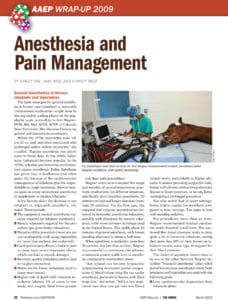
Options for general anesthesia in horses, analgesics (painkillers), and standing sedation were covered in depth at the 2009 convention of the American Association of Equine Practitioners.
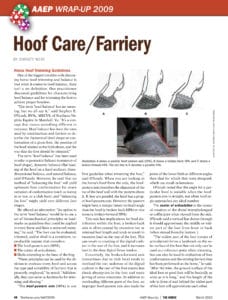
Guidelines for trimming horses’ feet and the results of a study evaluating toe grabs and catastrophic injury in racing Quarter Horses were discussed at the 2009 convention of the American Association of Equine Practitioners.
Horses with the hereditary skin disease known as hereditary equine regional dermal asthenia (HERDA) or hyperelastosis cutis (HC) have been recognized since the 1970s, but only recently have researchers defined just how much weaker their skin is
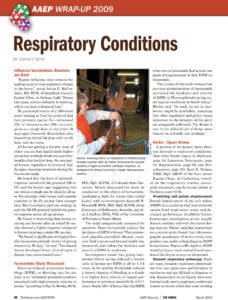
Researchers discussed respiratory topics in horses including influenza outbreaks and vaccination boosters, furosemide for exercise-induced pulmonary hemorrhage, dorsal displacement of the soft palate, dynamic respiratory tract endoscopy (during exercise), and more at the 2009 convention of the American Association of Equine Practitioners.
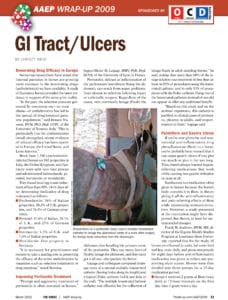
Deworming medication resistance, persimmon risks, peritonitis treatment advances, Salmonella biosecurity guidelines, and more equine gastrointestinal topics were discussed at the 2009 convention of the American Association of Equine Practitioners.
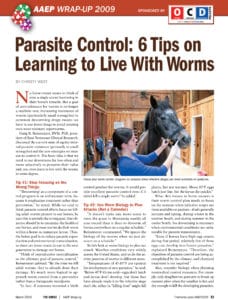
No horse owner wants to think of even a single worm burrowing in their horse’s innards. But a goal of zero tolerance for worms is no longer a realistic one; increasing resistance of worms (particularly small strongyles) to common deworming drugs means we have to use fewer drugs to avoid creating even more resistant superworms. (Presented at the 2009 AAEP Convention)
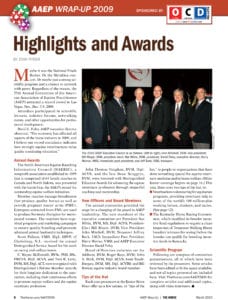
The 55th Annual Convention of the American Association of Equine Practitioners
(AAEP) attracted a record crowd to Las Vegas, Nev., Dec. 5-9, 2009.
Attendees participated in scientific lectures, industry forums, networking
events, and other opportunities for professional development.
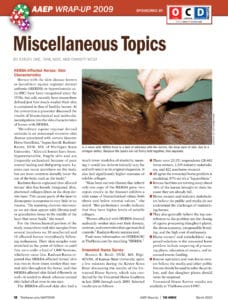
Miscellaneous sessions at the 2009 AAEP Convention, including skin characteristics of horses affected with hereditary regional dermal asthenia (HERDA, effects of Lawsonia infection on performance, unwanted horses survey, castration complications and more.
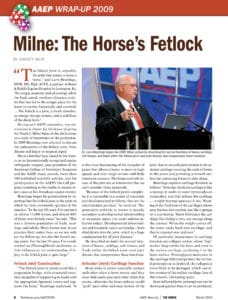
During each convention of the American Association of Equine Practitioners, one veterinarian is chosen for the honor of giving the Frank J. Milne State-of-the-Art Lecture on a topic of importance to the profession. In 2009 Larry Bramlage, DVM, MS, Dipl. ACVS, was selected to discuss the orthopedics of the horse’s fetlock joint, from disease and injury to surgical repair.
“There’s a large part of the world that depends more than ever on working equids,” said Jay Merriam, DVM, of Massachusetts Equine Clinic, in Uxbridge, who moderated the first-ever AAEP convention session on equitarian initiatives (2009). Merriam defined an equitarian as “one who serves equids with compassion, and whose only reward is their improved health and welfare.”

The hottest news in equine veterinary medicine in 2009 included a lethal medication compounding error, genetic deafness in Paint horses, bacteremia in foals, piroplasmosis, exercise-induced pulmonary hemorrhage, and more. (Presented at the Kester News Hour session, American Association of Equine Practitioners Convention, 2009)
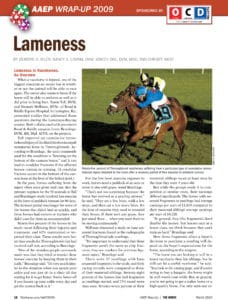
Several topics related to lameness in horses were presented at the 2009 American Association of Equine Practitioners convention, from racehorse lameness to regional limb perfusion, nerve blocks, and radiographic findings in Quarter Horses.
Stay on top of the most recent Horse Health news with
© 2022 Copyright Statement dolor sit amet, consetetur sadipscing User Terms, sed diam nonumy eirmod tempor invidunt ut labore et dolore magna aliquyam erat, sed diam voluptua. At vero eos et accusam et justo duo dolores et ea rebum. Stet clita kasd gubergren, no sea takimata sanctus est Lorem ipsum dolor sit amet.
"*" indicates required fields